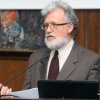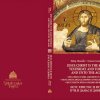Како на културу свакодневнице утиче глобална презасићеност дигиталним фотографијама: само у САД се сваке секунде произведе 4.000 нових
Милан Мишић, стални дописник Политике из Вашингтона
Када један председник и два премијера нису могли да одоле да се на церемонији која је захтевала смерност и загледаност у сопствене мисли, ”самосликају” мобилним телефоном у рукама једног од њих, то је свет обишло као куриозитет и скренуло пажњу на феномен који је овогодишња нова ”реч године” у енглеском језику: ”селфи”.
Актери овог чина, председник САД Барак Обама, премијер Велике Британије Дејвид Каморон и таблоидски речено ”атрактивна” председница владе Данске Хеле Торнинг Шмит, нису реаговали на критике да је њихово понашање на комеморацији Нелсону Мандели било недолично, иако су заиста личили ”на групу тинејџера који се глупирају”, али је фотографија тог фотографисања обишла свет и свакако постала још један симбол ексцеса наше ”дигиталне цивилизације”.
Била је и повод за нове есеје о фотографији, старом (19 век) медију који је својим ”обеспредмећивањем” - заменом слика на папиру пресвученом емулзијом сликама на екрану које се састоје само од пиксела (електронских тачкица) - постао нови феномен. Његове главне карактеристике притом су глобална презасићеност (само у Америци сваке секунде се, према једној процени, произведе 4.000 нових дигиталних фотографија) и што је, више него икад, ”демократизован”.
.



 Ускоро се навршава 150 година од рођења највећег српског комедиографа Бранислава Нушића и видим да се предвиђају разноразне прославе којима ће се обележити тај важан датум. Тако и треба. Само, не видим нигде податак да је највећи српски комедиограф у ствари био Цинцарин. Као, уосталом, и други највећи српски комедиограф Јован Стерија Поповић. Или, рецимо, велики српски песник Јован Јовановић Змај.
Ускоро се навршава 150 година од рођења највећег српског комедиографа Бранислава Нушића и видим да се предвиђају разноразне прославе којима ће се обележити тај важан датум. Тако и треба. Само, не видим нигде податак да је највећи српски комедиограф у ствари био Цинцарин. Као, уосталом, и други највећи српски комедиограф Јован Стерија Поповић. Или, рецимо, велики српски песник Јован Јовановић Змај.

